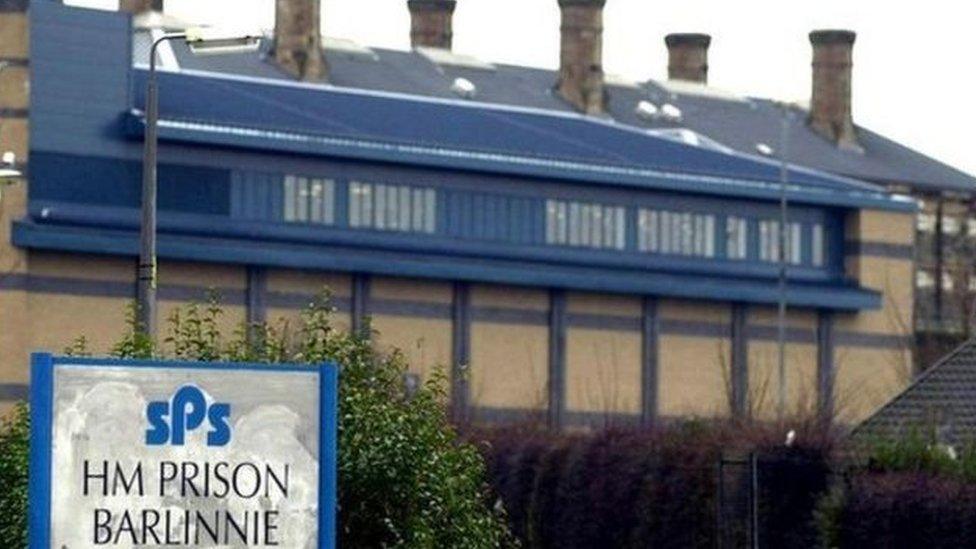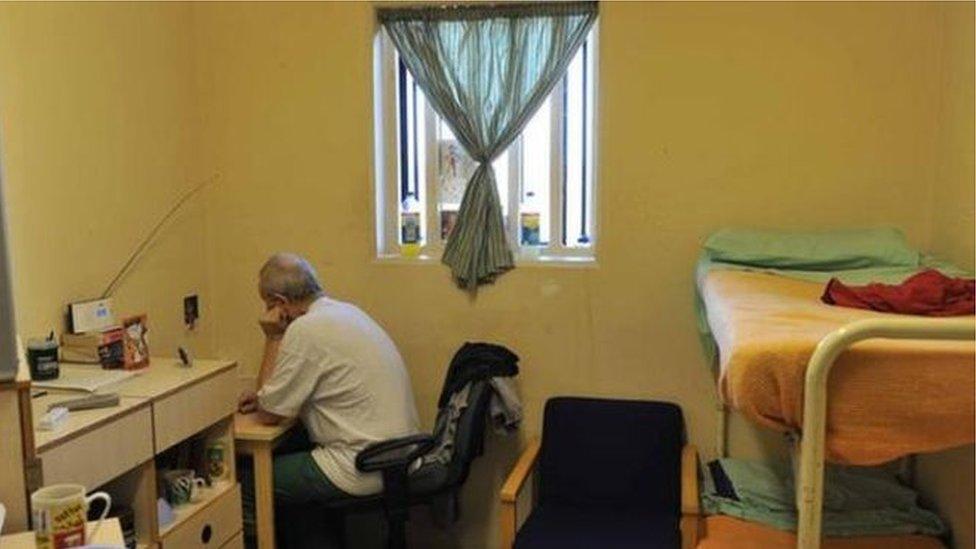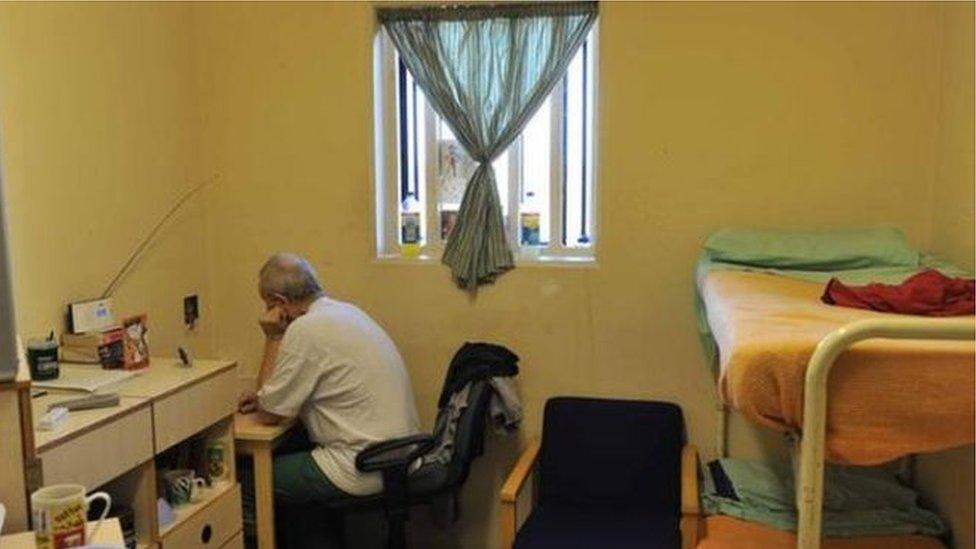Barlinnie prison operating at more than 40% over capacity
- Published

HMP Barlinnie in Glasgow is operating well over capacity according to new figures
Fears are growing at overcrowding in Scotland's largest prison after occupancy rates rose to more than 140%.
The 987-capacity Barlinnie in Glasgow reported a population of 1,449 in April.
Latest figures from the Scottish government showed a consistent rise in numbers every month since the start of the year.
It comes as the Scottish government published plans to restrict the use of short prison sentences.
In January, Barlinnie's occupancy rate was recorded as being 141.86%, with an average occupancy of 1,400.
The following month, the average climbed to 1,435, while in March it was 1,441. For April, there was an average occupancy of 1,449 prisoners.
The statistics, which provide analysis occupancy at prisons across the country, were provided to the government by the Scottish Prison Service (SPS) chief executive, Colin McConnell.
'Most appropriate sentences'
The SPS has indicated that design capacity and operational capacity of prisons are different and can change for reasons of policy, maintenance and changing operational requirements.
On Friday, proposals to restrict the use of short prison sentences were published by the Scottish government.
If passed by MSPs at Holyrood, it will oblige courts to explain why custodial terms of less than a year were given.
An affirmative order has now been published that, subject to the approval of Parliament, will extend the existing presumption from three to 12 months and come into force this summer.
People released from a custodial sentence of 12 months or less are reconvicted nearly twice as often as those sentenced to serve a Community Payback Order (CPO).

Community Safety Minister Ash Denham said: "We have made clear that the presumption is not a ban and its extension will not abolish short prison sentences. Clearly prison remains the right option for those who pose a serious risk to public safety and sentencing decisions will remain a matter for the independent judiciary.
"However, we want to ensure courts consider the most appropriate sentence in all cases and imprison people only when there is no suitable alternative.
"Disruptive and counterproductive short prison sentences often lead to homelessness, unemployment and family breakdown - making it harder for people to reintegrate on release and increasing the likelihood that they will be drawn into a cycle of offending."
He also said that the introduction of a presumption against sentences of three months or less and use of CPOs since 2011 have helped achieve a 19-year low in reconviction rates.
'Commitment to change'
More than £100m of funding for justice social work has been ring-fenced for 2019-20 with an investment of £9.5m a year more on community justice services such as community sentences and electronic monitoring compared to 2015-16.
Bill Fitzpatrick, Director of Operations, Community Justice Scotland, said: "Community Justice Scotland welcomes the extension of the presumption against short sentences to 12 months. It demonstrates a commitment to change and is a step towards smart, effective, more robust justice.
"Evidence shows this extension could reduce offending behaviour if strategic support is given to local service providers and communities to ensure that people pay back for the harm done and the underlying causes of crime are addressed."
- Published13 January 2019

- Published17 February 2019
